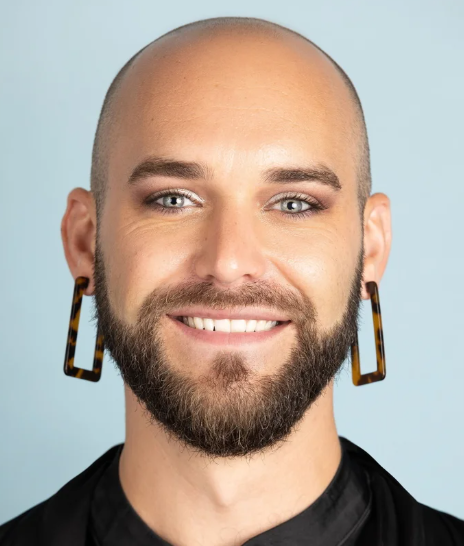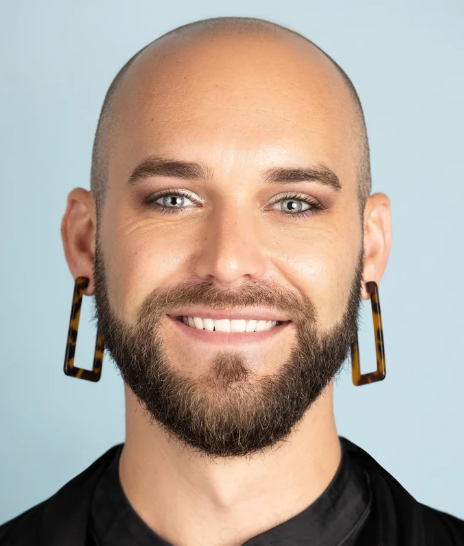The claims by Worcester Councilor-at-Large Thu Nguyen of transphobia and discrimination should have nothing to do with anyone’s thoughts on their performance as a city councilor. Full stop. Allegations of discrimination deserve to be taken seriously and investigated by leadership within any organization, and the City of Worcester is no exception. I believe this should be the focus of the current dialogue, not attacking someone’s performance record when they are bravely stepping forward to address targeted discrimination tied to their personhood.

At the same time, we can hold the reality there are connections between experiences of discrimination and performance. Persistent harassment, bias, and microaggressions create hostile environments that undermine a person’s ability to do their job effectively. According to the UCLA Williams Institute, more than half of transgender and nonbinary employees report workplace harassment, and 1 in 3 LGBTQ+ individuals have left a job due to mistreatment. Councilor Nguyen’s experience reflects a systemic issue, one impacting not just individuals but the organizations and communities they serve.
Discrimination in the workplace – whether in a corporate office, a small business, or on a city council – creates a toxic environment that stifles productivity, erodes trust, and harms both individuals and the broader community. When leaders fail to separate legitimate allegations of harm from critiques of performance, they dismiss the very real impact discrimination has on a person’s ability to thrive.
The systemic nature of discrimination
Councilor Nguyen’s experience is not unique. Data from the Center for American Progress shows LGBTQ+ individuals, particularly transgender and nonbinary people, face disproportionate rates of discrimination across employment, housing, healthcare, and public spaces. For example:
- More than half of LGBTQ+ individuals have altered their behavior at work, such as hiding their identities or avoiding certain colleagues, to prevent harassment.
- Nearly 1 in 3 LGBTQ+ adults have experienced housing discrimination, such as being denied access to shelters or harassed by neighbors.
- More than 1 in 5 LGBTQ+ individuals avoided necessary medical care in the past year due to fear of disrespect or discrimination from providers.
I’ve lived and worked in Worcester for 14 years, and as a nonbinary person who uses they/them pronouns, I know firsthand how the statistics about LGBTQ+ discrimination play out in daily life. Misgendering is a near-weekly experience for me, whether from strangers or colleagues, and each instance serves as a reminder of how our systems fail to treat respect for people’s identities as a fundamental standard.
Each incident forces a difficult decision: Do I correct the person, knowing it might derail the focus of an important conversation? Or do I let it pass, absorbing yet another sting to keep things moving? This mental calculus isn’t just exhausting, it highlights how systems and norms are set up to make respecting someone’s pronouns feel optional, minimizing the harm caused when people are misgendered.
Dr. Jennifer Davis Carey of the Worcester Education Collaborative, where I proudly serve on the board, has described the trauma of racism as a thousand tiny cuts, which exposes the intersections of some experiences for folks holding marginalized identities. For members of the LGBTQ+ community, these cuts often take the form of casual misgendering, dismissive comments, or outright discrimination. One or two may seem manageable, but the cumulative impact is devastating, eroding mental health, diminishing productivity, and forcing individuals to expend energy navigating harm rather than thriving in their roles.
As the founder and president of Love Your Labels, an organization dedicated to supporting LGBTQ+ youth and cultivating affirming spaces, I see firsthand how these small but constant harms create larger barriers to belonging and success. It perpetuates harm to expect individuals will bear the burden of correcting or educating others. It’s on all of us to make respect and accountability non-negotiable. We must commit to dismantling the systems that perpetuate harm and building spaces where affirming someone’s identity isn’t an act of allyship; it’s the baseline for human decency.
Leadership’s responsibility
The City of Worcester claims to value diversity, equity, and inclusion. But values without action are empty. Leadership must set the tone by modeling accountability, respect, and inclusion in every aspect of their work. As a community, we should request the City:
- Conduct an independent, third-party investigation into the allegations of transphobia and discrimination within Worcester City Council.
- Implement mandatory, ongoing diversity, equity, and inclusion (DEI) training for all City officials, staff, and council members, with a specific focus on LGBTQ+ awareness and anti-bias education.
- Establish and enforce a clear code of conduct for City officials, with specific policies addressing discrimination, misgendering, and harassment, as well as protocols for reporting and addressing violations.
- Require the City Council to adopt measurable equity goals and release an annual report detailing progress toward achieving them, including representation in leadership roles and workplace culture improvements.
- Host an annual public forum to review progress on equity goals, discuss challenges, and collaborate on solutions with residents.
When leaders dismiss allegations of harm as political tools, they send a dangerous message: that such values are optional, and that people who speak up against injustice risk being silenced or dismissed.
Call to action for Worcester
What happens next will be a testament to Worcester’s stated values and will set a precedent for years to come. If the City Council and administration fail to address these allegations seriously and inspire real change, the impact will extend beyond this one moment. It will send a message to every person in our community, especially youth, that their safety, dignity, and humanity may not be protected if they decide to step into public life.
Representation matters. When young people see leaders like Councilor Nguyen, they see possibilities for themselves. But representation cannot be sustained without support. If Worcester fails to address these issues head-on, it risks discouraging diverse voices from seeking leadership roles, weakening the progress we’ve made in building a government better reflecting our community.
Councilor Nguyen’s advocacy is part of a broader movement to challenge systems of oppression and push for meaningful change. Their allegations deserve full investigation, but they also present an opportunity for Worcester to rise to the occasion: to create a roadmap for how institutions can address harm, prevent discrimination, and foster environments where everyone can thrive.
We must put intersectionality at the core of our advocacy, recognizing the fight for LGBTQ+ equity is inseparable from racial justice and other struggles against oppression, as these systems of inequality are deeply interconnected and compound harm for those living at their intersections.
Equity is not about perfection; it’s about progress. It’s about holding ourselves accountable, looking at the gaps, and working to close them. Worcester’s leaders have a chance to show what real inclusion looks like – not just in words, but in actions.
Let’s rise to the occasion and prove that hate truly has no home here, not just for the present but for the future of our city.
Joshua Croke (they/them) is an equity-centered community designer, multidisciplinary artist, and queer urbanist dedicated to creating equitable, inclusive, and thriving communities. They are the founder and president of Love Your Labels, a nonprofit supporting LGBTQ+ youth through art, fashion, and design, and host the Queer For Cities podcast, bringing forward stories of queer imaginations and activities to cultivate thriving cities where LGBTQ+ folks thrive. Joshua serves on several boards in Worcester, including the Worcester Education Collaborative and the Community Advisory Board for the Collaborative in Health Equity at UMass Chan Medical School, and they are a passionate advocate for equity-centered design, creative placemaking, and intersectional justice. Learn more at JoshuaCroke.com.

